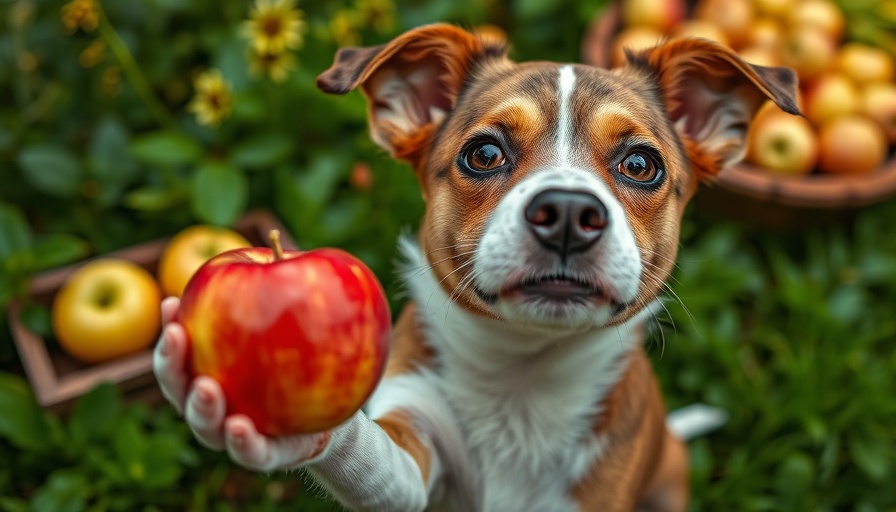
The Fight Against Canine Cancer Starts With Nutrition
For dog owners faced with a cancer diagnosis, the emotional toll is immense. The instinct to protect our furry friends can manifest in various ways, but one effective strategy is often left unrecognized: nutrition. Many pet owners are surprised to learn that certain superfoods can play a pivotal role in enhancing the immune response and potentially combatting cancerous cells in dogs. With the right dietary choices, we can support our beloved pets’ health and well-being.
Top Superfoods That Can Help Your Dog
In the quest to improve your dog’s diet, here are some of the best superfoods that not only provide essential nutrients but also have cancer-fighting properties:
1. Apples: The Crunchy Cancer-Fighter
Rich in antioxidants such as quercetin and catechin, apples are surprisingly beneficial for canine health. These compounds have shown promising potential in combatting cancer cells, while the fiber content aids digestive health. Eating apples can also support the immune system by lowering the risk of cancerous developments. Make sure to wash apples thoroughly, remove the core and seeds, and serve in moderation.
2. Carrots: A Traditional Power Booster
Carrots are more than just a crunchy snack—they’re packed with beta-carotene and antioxidants, providing effective protection against oxidative damage, which is crucial in cancer prevention. Serving carrots raw or steamed not only makes for a healthy treat but also ensures that your dog gets all the nutritional benefits without added salt or seasoning.
3. Blueberries: Tiny Packages of Power
Blueberries, high in anthocyanins and antioxidants, are noted for their role in preventing cell damage from free radicals, reducing the risk of cancer. Incorporating a handful of these delicious berries into your dog's diet not only makes their meals more flavorful but also packs a powerful punch against cancer.
4. Broccoli: The Leafy Green Wonder
This cruciferous vegetable is known for its high fiber and vitamin content, making it a favorite among health-conscious dog owners. Broccoli contains glucosinolates, which help prevent cancer cell growth. Steaming broccoli before serving can enhance digestibility and reduce gas, making it more palatable for your pup.
5. Sweet Potatoes: Nutrient-Rich and Delish
Sweet potatoes are a fantastic source of vitamins B6, C, and E. Not only are they delicious, but their slow-releasing sugars will keep your pet energized without the spikes in blood sugar. Plus, they support overall cellular health, providing protection against cancer.
Reinforcing Prevention Through Nutrition
Nutrition is an often-overlooked tool in our pets’ cancer prevention arsenal. Feeding your dog vegetables and fruits rich in antioxidants at least three times a week significantly reduces the risk of the development of diseases like transitional cell carcinoma (TCC). For optimal health benefits, keep the focus on high-quality foods that nourish the body and fortify the immune system.
Actionable Tips for Pet Owners
Incorporating these superfoods into your dog’s meals can be straightforward. Whether you mix them into their kibble or serve them as treats, small adjustments can lead to significant health improvements. It's essential to consult with your veterinarian before making drastic changes to their diet, especially if your dog has underlying health conditions or is undergoing treatment.
Final Thoughts: Empowering Dog Owners to Make Healthier Choices
Nourishing your dog with cancer-fighting superfoods is a proactive step toward ensuring they live a vibrant, healthy life. Just as nutrition plays a critical role in our health, it’s equally influential for our pets. By making informed decisions about their diet, we can enhance their quality of life and support their bodies in fighting against cancer. Start incorporating these superfoods today and help your furry friend thrive!
 Add Row
Add Row  Add
Add 




Write A Comment